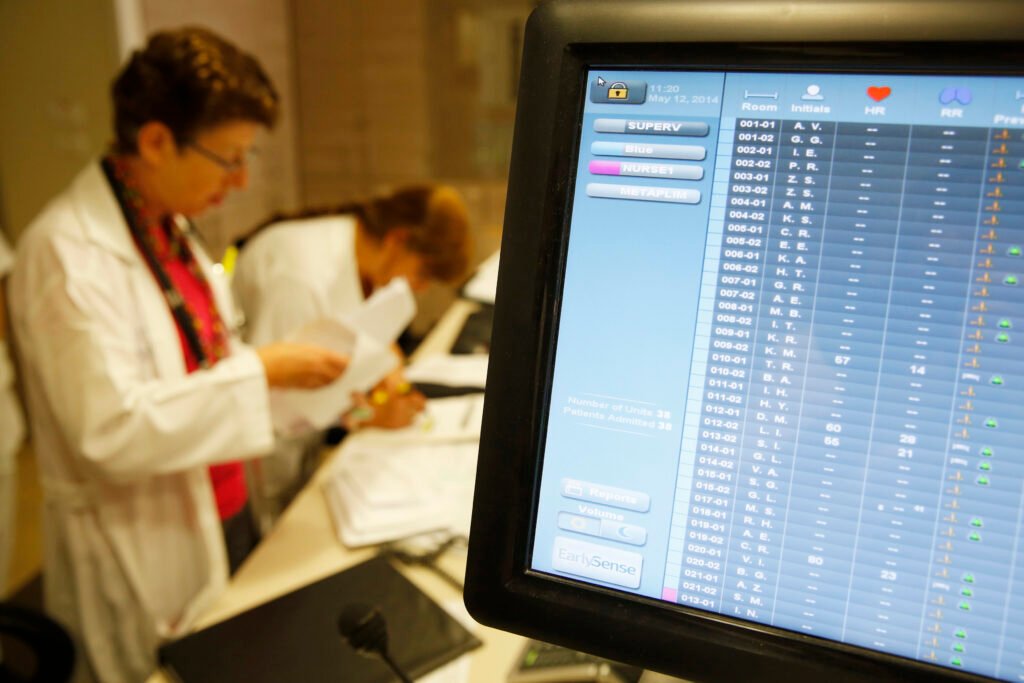Explore the transformative impact of Artificial Intelligence in the Criminal Justice System and Law Enforcement. Discover the future of policing with AI.
KEY TAKEAWAYS
- AI helps police work faster and smarter by doing paperwork and predicting where crimes might happen.
- AI can sometimes make unfair decisions because it learns from biased data.
- AI helps detectives solve crimes with technology like facial recognition, but you need to protect people’s privacy and rights.
In an era defined by technological innovation, Artificial Intelligence (AI) has emerged as a formidable force reshaping the landscape of the Criminal Justice System and Law Enforcement. This article delves deep into the fascinating realm where cutting-edge AI technologies intersect with the complexities of your legal and policing systems.
AI, with its ability to process vast amounts of data and detect patterns, has the potential to revolutionize crime prevention, investigation, and even sentencing. It offers law enforcement agencies powerful tools for predictive policing, aiding in the proactive identification of potential criminal activities. However, this transformative power comes with ethical and legal challenges, raising questions about fairness, bias, and privacy.
Join on an illuminating journey through the intriguing terrain of AI in the Criminal Justice System and Law Enforcement. We’ll explore the promises, pitfalls, and the ongoing quest for a balanced approach that harnesses the incredible potential of AI while safeguarding the principles of justice and civil liberties.
The Role of AI in Policing
As technology continues to advance, Artificial Intelligence (AI) is playing an increasingly pivotal role in modern law enforcement. This section delves into the specific applications of AI in policing, focusing on AI-powered predictive policing and crime prevention measures.
AI-Powered Predictive Policing
Predictive policing is a concept that harnesses the power of AI to anticipate and prevent crimes before they occur. This innovative approach relies on data analysis and machine learning algorithms to identify patterns, trends, and potential hotspots of criminal activity. It represents a significant shift from traditional reactive policing to a more proactive and preventive model.
How Predictive Policing Works
Predictive policing relies on a vast array of data sources, including historical crime data, socio-economic indicators, weather patterns, and even social media activity. Machine learning algorithms analyze this data to identify areas with higher probabilities of criminal incidents. Law enforcement agencies can then allocate resources more effectively, deploying officers to potential hotspots in a proactive manner.
Benefits and Criticisms
Predictive policing offers several notable benefits. It can lead to a reduction in crime rates, improve response times, and enhance overall public safety. However, it is not without its criticisms and challenges. Concerns about bias in the data used, potential infringements on civil liberties, and questions regarding the accuracy of predictions raise important ethical and legal considerations.

Photo:
Reuters
AI in Crime Prevention
In addition to predictive policing, AI plays a crucial role in broader crime prevention strategies. This section explores two key aspects: crime hotspot analysis and early intervention programs.
Crime Hotspot Analysis
AI-driven crime hotspot analysis involves the identification of geographical areas with a high concentration of criminal activity. By pinpointing these hotspots, law enforcement agencies can deploy resources strategically, increasing patrols and community engagement in these areas to deter criminal behavior. AI continuously updates these hotspot maps based on evolving crime patterns.
Early Intervention Programs
Early intervention programs utilize AI to identify individuals at risk of becoming involved in criminal activities, especially in cases involving juveniles. By analyzing various risk factors such as family history, school attendance, and social behavior, AI can identify individuals who may benefit from targeted interventions, such as counseling, mentoring, or support services. This proactive approach aims to steer individuals away from criminal paths and towards more positive life trajectories.
overall, AI’s role in policing and crime prevention within the Criminal Justice System and Law Enforcement is multifaceted. Predictive policing leverages AI’s analytical capabilities to anticipate and mitigate criminal activity, while crime hotspot analysis and early intervention programs use AI to enhance community safety and reduce crime rates. However, these AI-powered approaches also raise important questions about ethics, bias, and privacy that must be carefully addressed as they continue to shape the future of law enforcement.
AI in Investigations
Artificial Intelligence (AI) has revolutionized the field of criminal investigations, offering powerful tools for evidence analysis, digital forensics, and even criminal profiling. This section delves into the role of AI in investigative processes, highlighting its significance and potential challenges.
AI’s Role in Evidence Collection
AI plays a crucial role in evidence collection by automating and streamlining the process. Machine learning algorithms can sift through vast amounts of data, including surveillance footage, text messages, and social media activity, to identify potential evidence. This not only accelerates investigations but also enhances the accuracy and comprehensiveness of evidence gathered.
Solving Cold Cases with AI
One of the most remarkable applications of AI in investigations is its ability to reopen and solve cold cases. By reevaluating existing evidence and incorporating new data sources, AI algorithms can identify previously unnoticed patterns, connections, and potential suspects. This has led to the resolution of long-standing cases that had stymied investigators for years.
AI-Assisted Criminal Profiling
AI has also entered the realm of criminal profiling, aiding law enforcement agencies in understanding the behavior and characteristics of potential suspects. This section explores how AI assists in criminal profiling, its applications in behavioral analysis, and the associated challenges and ethical concerns.
Behavioral Analysis
AI can analyze vast datasets of criminal behavior, helping investigators profile offenders based on patterns and psychological traits. Behavioral analysis can provide valuable insights into criminal motivations, modus operandi, and potential future actions. This aids in narrowing down suspect lists and guiding investigative strategies.
Challenges and Ethical Concerns
While AI has brought unprecedented advancements to criminal investigations and profiling, it is not without its challenges and ethical considerations. Questions about data privacy, algorithm bias, and the potential for misuse of AI in profiling raise important ethical concerns. Ensuring transparency, fairness, and adherence to legal standards in AI-assisted criminal profiling remains a critical area of focus.
overall, AI has become an indispensable asset in the realm of criminal investigations within the Criminal Justice System and Law Enforcement. It accelerates evidence collection, breathes new life into cold cases, and enhances criminal profiling through behavioral analysis. However, the ethical and legal implications of AI in investigations underscore the need for careful oversight and responsible implementation to ensure justice is served while protecting individual rights and privacy.
AI in Courtrooms
The integration of Artificial Intelligence (AI) into the criminal justice system extends beyond policing and investigations; it also plays a vital role in courtrooms. This section explores the applications of AI in court proceedings, focusing on AI-assisted legal research and its impact on sentencing and parole decisions.
AI-Assisted Legal Research
AI has become a powerful ally for legal professionals by significantly enhancing the efficiency and depth of legal research. This technology aids lawyers and judges alike in several ways.
Improved Case Preparation
AI tools can swiftly sift through vast legal databases, case histories, and precedents to provide legal practitioners with a comprehensive view of relevant case law. This streamlines the case preparation process, ensuring that all relevant legal arguments are considered.
Enhanced Legal Analysis
In addition to research, AI-powered legal analysis can assist in predicting case outcomes. Machine learning algorithms can assess the strengths and weaknesses of legal arguments, helping legal teams refine their strategies for a more effective presentation in court.

Photo:
Reuters
AI in Sentencing and Parole
AI’s influence extends to the sentencing phase of criminal proceedings and efforts to reduce recidivism. This section examines how AI impacts sentencing decisions and its role in parole programs.
AI’s Impact on Sentencing Decisions
AI is increasingly being used to assist judges in sentencing decisions. Algorithms can analyze a wide array of factors, including criminal history, socio-economic data, and psychological profiles, to provide recommendations for sentences that are fair, consistent, and tailored to individual circumstances. However, concerns about bias and transparency in these algorithms persist and require ongoing scrutiny.
Reducing Recidivism with AI Programs
In the pursuit of a more rehabilitative justice system, AI programs are being deployed to identify inmates who may benefit from specific interventions, such as counseling, job training, or substance abuse treatment. By tailoring rehabilitation efforts to individual needs, AI-driven programs aim to reduce recidivism rates, ultimately benefitting both offenders and society at large.
overall, AI’s presence in the criminal justice system and law enforcement extends into the courtroom, where it aids in legal research, case preparation, and analysis. Furthermore, AI contributes to more informed and equitable sentencing decisions while also supporting initiatives to reduce recidivism through personalized intervention programs. However, the ethical and fairness concerns surrounding AI in the legal domain highlight the importance of careful oversight and continuous refinement of these technologies to ensure that justice is served impartially and with due regard for individual rights.
Ethical and Legal Implications
While the integration of Artificial Intelligence (AI) into the criminal justice system and law enforcement holds great promise, it also presents significant ethical and legal challenges. This section explores some of the pressing concerns related to bias and fairness, as well as privacy and surveillance.
Bias and Fairness Concerns
AI systems are not immune to bias, and their deployment in criminal justice raises critical questions about fairness and discrimination.
Addressing Algorithmic Bias
To mitigate bias in AI systems, robust measures must be put in place. This includes regular auditing and testing of algorithms for potential biases, as well as the establishment of clear guidelines and standards for fairness in AI decision-making. Transparency in the development and deployment of AI systems is paramount to addressing bias concerns.
Ensuring Fairness in AI Systems
Ensuring fairness involves not only eliminating bias but also addressing structural inequalities that may be perpetuated by AI systems. It requires a comprehensive approach that considers the socioeconomic, racial, and gender disparities that can influence AI outcomes. Fairness should be a foundational principle guiding the use of AI in the criminal justice system.
Privacy and Surveillance Issues
The use of AI in law enforcement and criminal justice often intersects with issues of individual privacy and surveillance.
Facial Recognition and Privacy
Facial recognition technology, powered by AI, has raised concerns about mass surveillance and the erosion of personal privacy. It is crucial to strike a balance between the potential benefits of facial recognition in identifying suspects and the protection of citizens’ rights to privacy.
Data Privacy in Law Enforcement
Law enforcement agencies collect vast amounts of data for investigative purposes. The use of AI to analyze this data raises concerns about data privacy, including how long data is retained, who has access to it, and the potential for misuse or abuse. Robust data protection and privacy policies must be in place to safeguard individuals’ sensitive information.
overall, the ethical and legal implications of AI in the criminal justice system and law enforcement cannot be understated. Bias and fairness concerns necessitate ongoing efforts to ensure that AI systems do not perpetuate discrimination, while privacy and surveillance issues demand careful consideration of individual rights and freedoms. Striking the right balance between the potential benefits of AI and the protection of civil liberties is an ongoing challenge in the evolving landscape of AI within the criminal justice system.
Regulation and Accountability
The rapid integration of Artificial Intelligence (AI) into the criminal justice system and law enforcement has spurred discussions about the need for regulation and accountability. This section delves into the governmental regulations governing AI use and the mechanisms in place to ensure transparency and accountability.
Government Regulations on AI Use
As AI systems become more integrated into law enforcement and criminal justice processes, governments around the world are recognizing the importance of regulating their deployment. These regulations aim to establish a framework for ethical and responsible use of AI in these domains.
Oversight and Compliance
Government regulations require robust oversight mechanisms to ensure compliance. Oversight bodies are tasked with monitoring the use of AI in law enforcement and the criminal justice system to guarantee that it aligns with legal and ethical standards. Compliance with these regulations is crucial to maintaining public trust.
Balancing Innovation and Control
Regulation of AI in the criminal justice system must strike a balance between fostering innovation and maintaining control. Overly stringent regulations can stifle progress, while a lack of regulation can lead to unchecked AI deployment with potentially negative consequences. Finding the right equilibrium is a complex but necessary task for policymakers.

Photo: Finbarr O’Reilly
Ensuring Transparency
Transparency is a key aspect of AI regulation within the criminal justice system, ensuring that the inner workings of AI systems are accessible and understandable to all stakeholders.
Public Access to AI Algorithms
One method to ensure transparency is providing public access to AI algorithms used in law enforcement and criminal justice. This allows for independent audits and scrutiny of these algorithms to verify fairness, accuracy, and compliance with regulations.
Accountability Mechanisms
Accountability mechanisms play a crucial role in ensuring that individuals and organizations responsible for AI deployment in law enforcement and the criminal justice system are held responsible for their actions. Accountability can take various forms, including legal consequences for misuse or negligence and the establishment of clear lines of responsibility.
overall, as AI continues to shape the landscape of the criminal justice system and law enforcement, regulations and accountability mechanisms are essential to ensure responsible and ethical AI use. Government oversight, compliance, transparency, and accountability measures are vital components of this evolving framework, aiming to harness the benefits of AI while safeguarding against potential risks and abuses of power.
Future Trends and Concluding Thoughts
The rapid advancement of Artificial Intelligence (AI) in the criminal justice system and law enforcement is an ever-evolving journey, marked by both promise and challenges. This section explores emerging technologies, AI’s potential for positive change, and the persistent areas that demand improvement.
AI’s Potential for Positive Change
AI continues to hold great promise for transforming the criminal justice system and law enforcement in profound ways.
- Enhanced Efficiency: AI’s ability to process vast amounts of data and automate routine tasks can significantly increase the efficiency of investigations, case management, and court proceedings. This leads to quicker resolutions and cost savings.
- Reduced Bias: As AI technologies evolve, there is the potential for reducing human bias in decision-making processes, contributing to fairer outcomes in sentencing, policing, and profiling.
- Improved Public Safety: Predictive policing and early intervention programs powered by AI can enhance public safety by preventing crimes and rehabilitating offenders, ultimately reducing recidivism rates.
Remaining Challenges and Areas of Improvement
While the prospects of AI in the criminal justice system are exciting, several challenges and areas for improvement persist.
- Ethical Concerns: Addressing issues of bias, transparency, and privacy in AI algorithms and systems is an ongoing challenge. Striking the right balance between technological innovation and ethical considerations remains paramount.
- Data Quality and Integrity: AI systems heavily rely on data, and ensuring data quality, accuracy, and integrity is essential. Garbage in, garbage out applies to AI, and efforts to improve data collection and management are crucial.
- Legal Frameworks: Developing and adapting legal frameworks to accommodate AI advancements is a complex process. Legislation and regulations need to keep pace with technology, addressing issues such as liability and accountability.
- Equity and Access: Ensuring that AI benefits are equitably distributed across different communities and demographics is a priority. Bridging the digital divide and addressing disparities in access to AI resources is essential.
overall, the integration of AI into the criminal justice system and law enforcement represents an exciting frontier with the potential for significant positive change. However, this journey is not without its hurdles, including ethical, legal, and equity concerns. As AI technologies continue to evolve, a proactive approach that balances innovation with accountability will be essential to ensure a more efficient, fair, and just criminal justice system and law enforcement practices.
Final Thoughts
In the Criminal Justice System and Law Enforcement, Artificial Intelligence (AI) has emerged as a powerful ally, poised to shape the future of policing, investigations, court proceedings, and beyond. AI offers unprecedented efficiency gains, predictive capabilities, and the potential to reduce biases that have long plagued these systems.
However, this transformative journey is not without its ethical and legal challenges. Concerns over bias, transparency, privacy, and equitable access demand your attention and careful consideration. Striking the right balance between technological innovation and ethical responsibility is paramount.
As you embrace the promises of AI in the pursuit of a more just and effective criminal justice system, you must remain vigilant. Ongoing regulation, oversight, and accountability mechanisms will play a pivotal role in ensuring that AI serves as a force for positive change, upholding the principles of fairness, transparency, and justice for all. The road ahead is both exciting and challenging, but it is a path worth navigating to create a more equitable and efficient criminal justice system for your future.






































